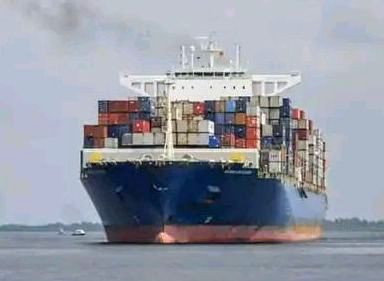Marine engineers and naval architects across Nigeria gathered in Port Harcourt on Monday, December 9, under aegis of the Nigerian Institution of Marine Engineers and Naval Architects (NIMENA), to explore ways to achieve the $44 billion projected as maritime sector’s contribution to Nigeria’s gross domestic product (GDP).
This is as Nigeria’s Blue Economy is expected to contribute as much as $44 billion every year to the nation’s economy, according to the marine engineers and industry experts.
To unlock this potential, National chairman of the Nigerian Institution of Marine Engineers and Naval Architects (NIMENA), Dr. Daniel Tamunodukobipi, emphasized the need for collective action towards advancing national maritime regulations.
Speaking at the 13th Annual NIMENA Conference, with the theme; ‘Advancing National Maritime Regulations for Shared Prosperity’, Dr Tamunodukobipi stressed that “We must work together to advance national maritime regulations and unlock the industry’s potential.”
NIMENA’s national chairman, who is also the head of department of Marine Engineering at the Rivers State University (formerly University of Science and Technology, UST), stressed that the starting point is putting round pegs in round holes by deploying professionals in the agencies relied upon to develop the maritime sector.
He decried the appointment of non-marine engineers in agencies that grant licenses and certify maritime practitioners, saying such errors attract disrespect to the Nigerian maritime subsector from international maritime circles.
Chairman of the South-South Steering Committee, George Okoroma, highlighted the importance of regulations in ensuring safety in the maritime industry.
He noted that regulations are key to preventing accidents and ensuring the industry’s growth.
According, to him: “We must regulate engineering practices to prevent accidents and ensure the industry’s growth.”
Also, during his presentation on ‘The Cabotage Act and the Role of Waivers in The Advancement of the Nigerian Maritime Industry,’ the Executive Director, Maritime Labour and Cabotage Services, Jibril Abba, explained that the Act aimed to promote local content and capacity-building in the maritime industry.
The concern in the maritime industry is the failure of the years to activate section 42 which created a fund to build ships and vessels by indigenous operators.
Experts said the clause is so stringent that it has remained undeployed while foreign vessel owners continue to enjoy waivers to ply Nigeria’s waters, thereby making nonsense of the intentions of the Cabotage Act.
The Executive Director was represented by his Assistant, Stephen Opara, who emphasized the need to promote local content and capacity building in the maritime industry through the Cabotage Act.
“The Act is designed to prevent foreign domination of our trade and encourage indigenous capacity building,” he said.
Keynote speaker, Andrew Aligbe, noted that effective regulations were essential to unlocking the industry’s potential. “Maritime regulations are the backbone of a robust, sustainable, and inclusive maritime industry.”
Meanwhile, the conference discussed innovative approaches to maritime safety compliance, technological advancements in naval architecture, and economic growth through maritime financing.
The maritime stakeholders noted that with the industry’s potential contribution to the GDP estimated at $44 billion annually, they were eager to work together to advance national maritime regulations and unlock the industry’s potential.
 PH Mundial – Port Harcourt Online Newspaper News Across The Region
PH Mundial – Port Harcourt Online Newspaper News Across The Region





